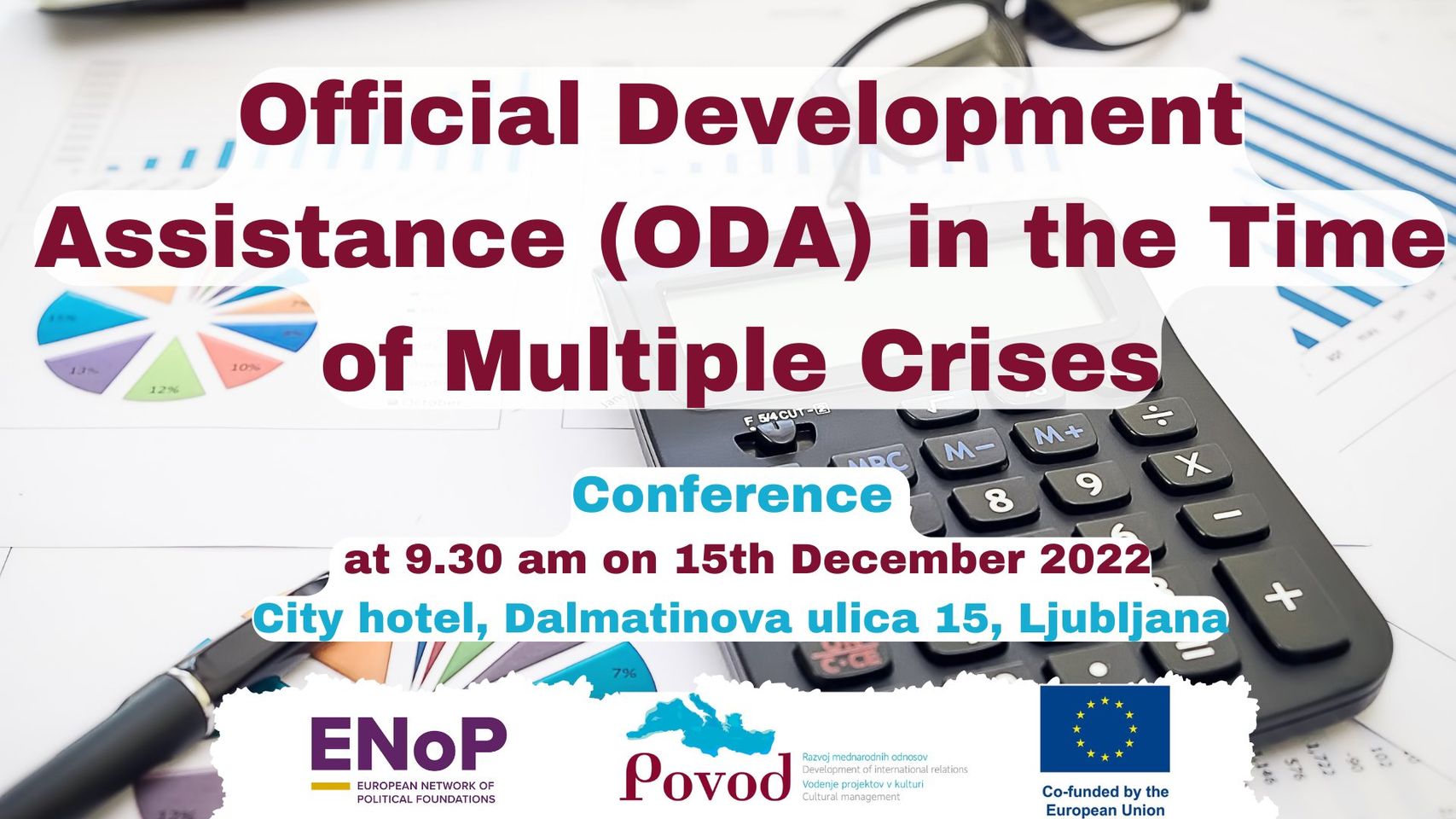Official Development Assistance (ODA) in the Time of Multiple Crises

On 15 December 2022 ENoP member Povod organised the conference Official Development Assistance (ODA) in the Time of Multiple Crises in Ljubljana, Slovenia.
European countries have been faced with numerous global challenges in the past few years, from climate change and the still ongoing Covid-19 pandemic to the worsening global order and potential fragmentation to smaller regional groupings, all of which has impacted the smoothness of different global supply chains required for the current global system to function.
Official development assistance provided by OECD donor countries represents an urgently needed tool for assuring global sustainable development and supporting the Agenda 2030 commitment to leave no one behind. The need for ODA has grown drastically in the last years and months. OECD donor countries have been trapped with the fact of global energy and food prices rising, which is pushing country inflation.
The focus of the conference was on the national and EU bilateral ODA quantity and quality as well as reaching ODA commitments for the implementation of Agenda 2030 and reaching SDGs. Implementation of bilateral ODA demands more professionalism from donors (in line with international development standards about aid effectiveness) in comparison with multilateral aid.
Bilateral aid brings more public support and more visibility to national actors and provides more opportunities to different actors from donor and partner countries to better strengthen their cooperation, and contributes to diminishing global inequalities. NGOs are among the most effective and well recognized actors implementing projects financed through bilateral ODA. Different European (EU) countries have different priorities, but many of them prioritize bilateral channels for providing ODA. From a small donor country perspective, the level of bilateral assistance which is delivered in line with international standards shows its government and society’s commitment to global sustainable development. Would such kind of modus operandi in rapidly changing circumstances change country priorities? What would be the implications for the role of EU member states in global poverty and inequalities reduction?
Prior to the conference, Povod held a half day workshop as a thematic discussion with different ENoP members and CSO representatives from EU and Slovenia. The participants shared their practical experiences, views and knowledge on policies at the national, EU or global level. The purpose of the workshop was to strengthen CSO view on the issue of ODA and international cooperation and to prepare issues for the next day conference panel.